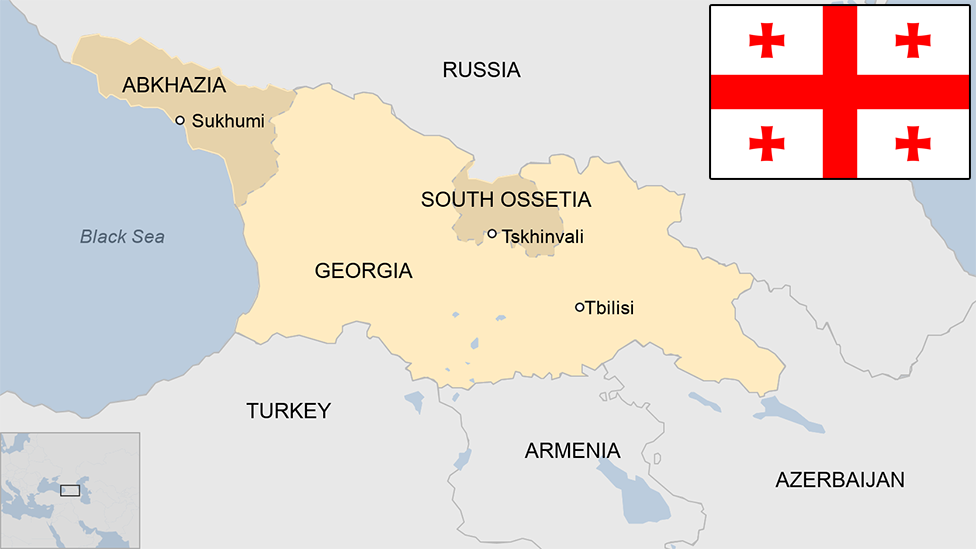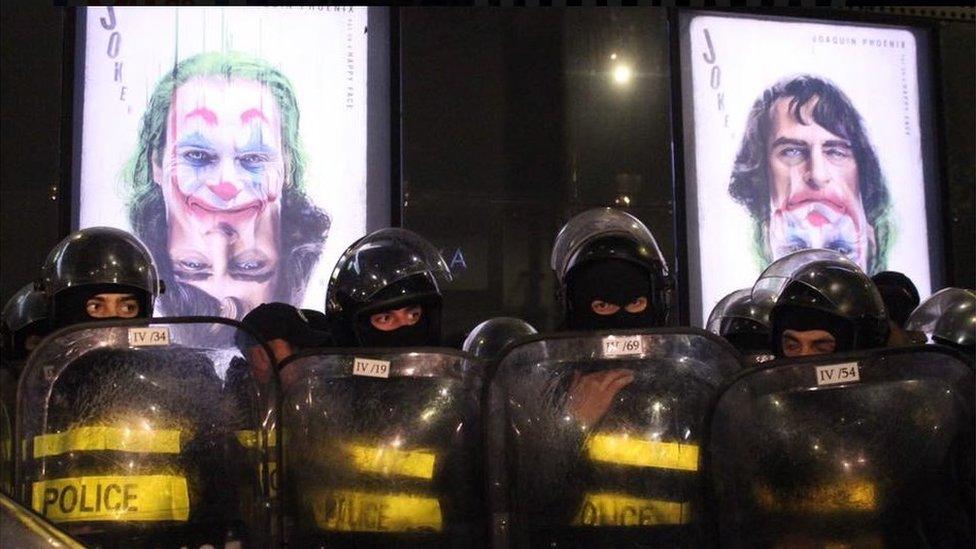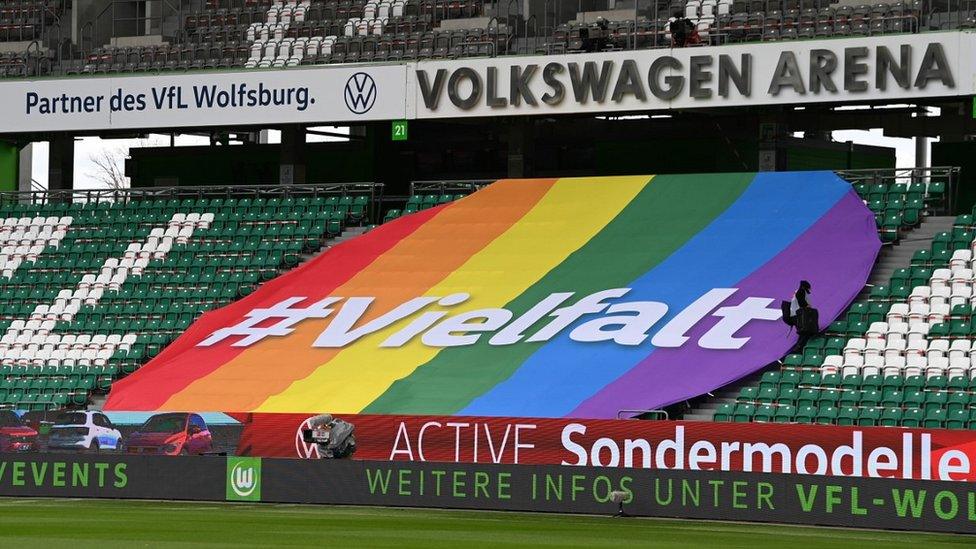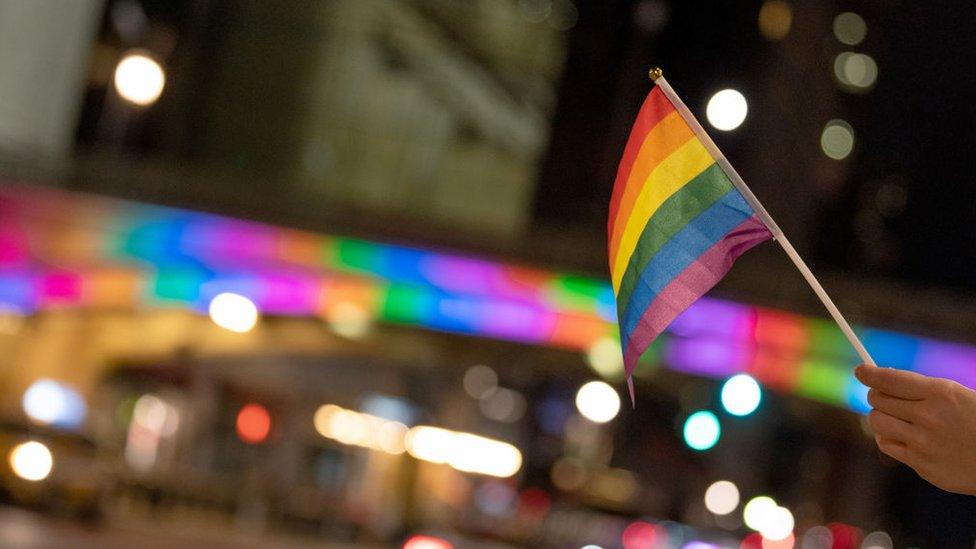Georgia: Tbilisi Pride cancelled amid violent protests
- Published
Rainbow flags were torn up and burned during the violent far-right protests in Tbilisi
LGBT activists in Georgia have cancelled a gay rights event after their office was stormed by far-right protesters.
Journalists and activists were also attacked ahead of the planned march in the capital Tbilisi, local reports say.
"We cannot risk human lives and take to the streets, which are full of violent attackers," Tbilisi Pride announced.
The attacks have been condemned by a number of embassies, who have called for authorities to stop the violence.
Activists had organised five days of Pride events, but in a statement on Monday, Tbilisi Pride said local authorities had "not only failed to secure safety of the queer community and our supporters, but actively hampered us from exercising the right of assembly" ahead of the planned march.
At least 20 journalists were reportedly injured in the violence, while an LGBT rainbow flag was burned in the street.
Allow X content?
This article contains content provided by X. We ask for your permission before anything is loaded, as they may be using cookies and other technologies. You may want to read X’s cookie policy, external and privacy policy, external before accepting. To view this content choose ‘accept and continue’.

In a joint statement issued on Monday, external, the US, UK, the EU and a number of other diplomatic missions called on Georgian authorities "to act swiftly to protect those exercising their constitutional rights to freedom of expression and assembly, to protect journalists exercising freedom of the press, and to publicly condemn violence".
Georgia's interior ministry had previously called on the organisers to cancel the Pride march due to safety concerns, while Prime Minister Irakli Gharibashviil described the event as "unacceptable for a large segment of the Georgian society".
However, another activist group said the government had failed to offer security to activists and journalists and was "responsible for today's violence".
The Georgian Orthodox Church, which strongly opposes LGBT activists, had also called for a public prayer meeting against the Pride event.
While discrimination against sexual orientation is illegal in Georgia, the country - which lies between Eastern Europe and Western Asia - remains very conservative.
In 2019, far-right protesters joined demonstrations against the premiere of Georgia's first LGBTQ film in Tbilisi.
- Published31 December 2024

- Published8 November 2019

- Published2 July 2021

- Published5 July 2021

- Published27 June 2021
